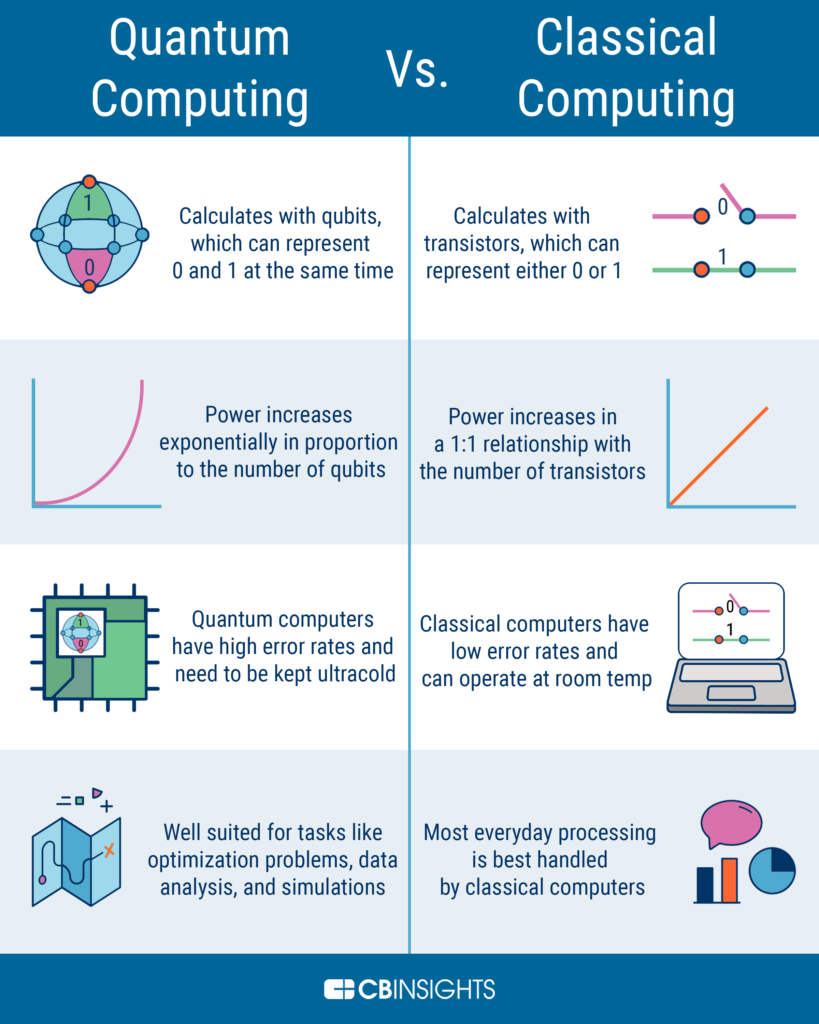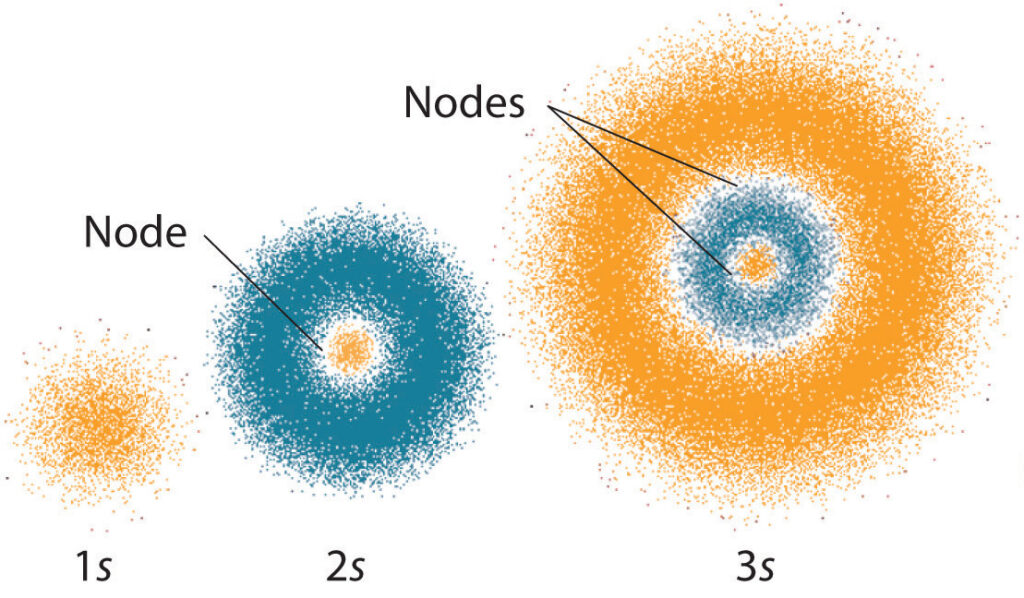Quantum computing is an emerging field that is set to revolutionize the way we process information. Unlike classical computers, which rely on binary digits (bits) to represent information, quantum computers use quantum bits (qubits) to store and manipulate information. This allows them to perform certain calculations exponentially faster than classical computers. One of the key components of a quantum computer is the quantum logic gate, which is responsible for manipulating the qubits to perform specific operations.
Quantum logic gates work on the fundamental principles of quantum mechanics, which govern the behavior of particles on a subatomic level. Unlike classical logic gates, which operate on binary digits, quantum logic gates operate on quantum states. These states can be thought of as a combination of two or more qubits, which can be in a superposition of different states at the same time. By manipulating these quantum states, quantum logic gates can perform complex calculations that would be impossible for classical computers to achieve in a reasonable amount of time.
Quantum logic gates are devices that process quantum information using quantum entanglement. They are composed of qubits, which are quantum bits that can exist in multiple quantum states at the same time. Quantum logic gates allow for quantum computation, which enables the manipulation of quantum information with greater accuracy than traditional computers. Quantum logic gates work by manipulating the quantum state of qubits in order to perform logical operations.
- Quantum logic gates use qubits, which are quantum bits that can exist in multiple quantum states at the same time.
- These gates allow for quantum computation, leading to the manipulation of quantum information with greater accuracy than traditional computers.
- Quantum logic gates work by manipulating the quantum state of qubits to perform logical operations.
- The manipulation of qubits is done through a series of operations that are applied to the qubits.
- These operations are then used to produce a desired result.

How Quantum Logic Gates Work?
Quantum logic gates are complex computing devices used to manipulate quantum information. They are the building blocks of quantum computers, which are able to solve problems faster and more efficiently than classical computers. In this article, we will explore how quantum logic gates work and how they can be used to solve complex problems.
What are Quantum Logic Gates?
Quantum logic gates are the basic components of quantum computers. They are a type of gate that uses quantum mechanical phenomena to manipulate quantum information. These gates can be used to perform logic operations on quantum bits (qubits) of information. They can be used to create circuits that can perform calculations faster and more efficiently than classical computers.
Quantum logic gates are based on two principles: superposition and entanglement. Superposition is the ability of a qubit to exist in multiple states at the same time. Entanglement is the ability of two qubits to interact with each other even when they are separated by a large distance. By using these two principles, quantum computers can solve complex problems faster and more accurately than classical computers.
How do Quantum Logic Gates Work?
Quantum logic gates are based on the principles of quantum mechanics. They use qubits to represent information, which can exist in multiple states at the same time. These gates manipulate the qubits in order to perform logic operations.
The basic components of a quantum logic gate are the control qubit, the target qubit, and the gate operation. The control qubit is used to control the state of the target qubit. The gate operation is the process of manipulating the qubits in order to perform a logic operation.
Quantum logic gates can be used to perform a variety of operations, such as addition, subtraction, multiplication, division, and comparison. These operations can be used to solve complex problems, such as optimization and machine learning.
Advantages of Quantum Logic Gates
Quantum logic gates offer several advantages over classical computers. They can solve complex problems faster and more accurately than classical computers. They can also be used to create circuits that are more reliable and more secure than classical circuits.
Quantum logic gates are also more energy-efficient than classical computers. This is because they require less energy to perform operations. This makes them ideal for use in applications where energy efficiency is important, such as in battery-powered devices.
Finally, quantum logic gates can be used to create circuits that are resistant to tampering. This is because the qubits used in quantum logic gates are much more difficult to manipulate than classical bits. This makes them ideal for use in applications where security is important, such as in cryptography.
Conclusion
Quantum logic gates are complex computing devices used to manipulate quantum information. They are the building blocks of quantum computers, which are able to solve problems faster and more efficiently than classical computers. Quantum logic gates are based on two principles: superposition and entanglement. They use qubits to represent information and can be used to perform a variety of logic operations. Quantum logic gates offer several advantages over classical computers, such as being more energy-efficient and more secure.
Frequently Asked Questions about How Quantum Logic Gates Work
Quantum logic gates are a type of circuit element used in quantum computing. They allow quantum systems to manipulate data and carry out complex calculations. This guide provides answers to some of the most commonly asked questions about quantum logic gates.
What is a quantum logic gate?
A quantum logic gate is a type of circuit element used in quantum computing. It is a device that allows quantum systems to manipulate data and carry out complex calculations. Quantum logic gates are similar to traditional logic gates, but they use quantum bits (qubits) instead of classical bits. Qubits are the basic units of information in a quantum system and can be in multiple states at the same time. Quantum logic gates can manipulate these qubits in a variety of ways to perform computations.
How do quantum logic gates work?
Quantum logic gates work by manipulating the state of qubits. Depending on the type of gate, these manipulations can involve changing the state of one or more qubits, or entangling them with each other. Entanglement is a quantum phenomenon where two qubits become “linked” and their states become correlated. Quantum logic gates can use these correlations to carry out complex calculations. For example, a quantum logic gate can be used to create a superposition of two qubits, which can then be used to solve problems that are too difficult for classical computers.
What are the different types of quantum logic gates?
There are a variety of different types of quantum logic gates. The most common are the CNOT (controlled NOT) gate, the Toffoli (T) gate, and the Hadamard (H) gate. Each gate has different properties and performs different operations on qubits. For example, the CNOT gate is used to control the state of one qubit based on the state of another qubit, while the Toffoli gate can be used to create a superposition of three qubits.
How are quantum logic gates used in quantum computing?
Quantum logic gates are used in quantum computing to manipulate qubits and carry out calculations. By combining different types of gates, it is possible to build complex algorithms that can solve problems that are too difficult for classical computers. For example, a quantum computer could be used to simulate complex quantum systems, such as molecules, or to crack codes that are currently unbreakable.
What are the advantages of using quantum logic gates?
The main advantage of using quantum logic gates is that they can perform calculations that are too difficult for classical computers. Quantum logic gates can also be used to create entanglement between qubits, which can be used to solve problems faster than traditional methods. Additionally, quantum logic gates can be used to create secure communications channels, since entanglement makes it difficult for third parties to eavesdrop on the conversation. Finally, quantum logic gates are much smaller than traditional logic gates, which makes them more suitable for use in small, handheld devices.

Logic Gates Rotate Qubits
In conclusion, the concept of quantum logic gates may seem complex and difficult to understand at first glance. However, with a deeper understanding of the principles of quantum mechanics, it becomes clear that these gates are an essential tool for processing information in quantum computing systems. By manipulating the quantum state of particles, logic gates allow for the creation of complex algorithms and calculations that are impossible to perform using classical computing methods.
As quantum computing continues to advance, the development of more advanced and efficient logic gates will play a crucial role in unlocking the full potential of this technology. With the potential to revolutionize fields such as cryptography, materials science, and drug discovery, the importance of understanding how quantum logic gates work cannot be overstated. As researchers and engineers continue to push the boundaries of quantum computing, the possibilities for what can be achieved with this technology are truly limitless.



